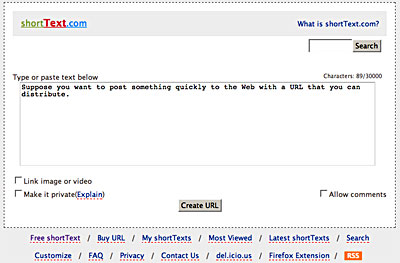Here’s something to drive innumerate spin-doctors wild: a mathematical theory of opinion formation by Fang Wu and Bernardo Huberman of HP Labs. Abstract reads:
We present a dynamical theory of opinion formation that takes explicitly into account the structure of the social network in which individuals are embedded. The theory predicts the evolution of a set of opinions through the social network and establishes the existence of a martingale property, i.e. that the expected weighted fraction of the population that holds a given opinion is constant in time. Most importantly, this weighted fraction is not either zero or one, but corresponds to a non-trivial distribution of opinions in thelong time limit. This coexistence of opinions within a social network is in agreement with the often observed locality effect, in which an opinion or a fad is localized to given groups without infecting the whole society. We verified these predictions, as well as those concerning the fragility of opinions and the importance of highly connected individuals in opinion formation, by performing computer experiments on a number of social networks.
So now you know. The paper has lots of nice equations of the kind that make some people’s eyeballs revolve. But, at heart, it reaches reassuringly obvious conclusions. For example,
Our theory further predicts that a relatively small number of individuals with high social ranks can have a larger effect on opinion formation than individuals with low rank. By high rank we mean people with a large number of social connections. This explains naturally a fragility phenomenon frequently noted within societies, whereby an opinion that seems to be held by a rather large group of people can become nearly extinct in a very short time, a mechanism that is at the heart of fads.
These predictions, which apply to general classes of social networks, including power-law and exponential networks, were verified by computer experiments and extended to the case when some individuals hold fixed opinions throughout the dynamical process. Furthermore, we dealt with the case of information asymmetries, which are characterized by the fact that some individuals are often influenced by other people’s opinions while being unable to reciprocate and change their counterpart’s views.

